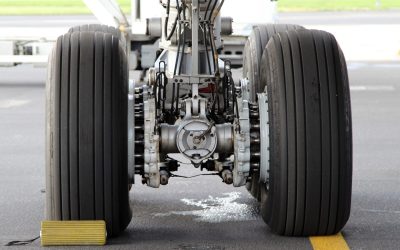What is risk? The online Oxford Learners Dictionary defines risk as:
“The possibility of something bad happening at some time in the future; a situation that could be dangerous or have a bad result.”
Looking at this definition, one can see risk is very much defined by perspective. For example, one is hardly at risk of injury standing 200 metres away from industrial machinery, whereas standing 2 metres away, one is much more likely to be injured, the risk factor increases. Risk management is a major function of safety in aviation. Through the implementation of mandatory formal Safety Management Systems (SMS), the authorities of each state responsible for aviation have put in place a mechanism to mitigate against excessive risk. Notice the term excessive. As previously discussed, risk is a part of everyday life. What one must determine in many everyday situations is the acceptable level of risk. This is exactly what an SMS is trying to do for the organisation it is acting for. SMS is not just about ensuring aeroplanes are operated in a safe manner, but it encompasses the risk management in all aspects of aviation. From the transfer of fuel into a plane to the care and well being of passengers from the time they set foot on airport property until they reach their destination.

Many users of airports and aviation facilities are not familiar with the various aspects on site. As a result, often SMS requires the highlighting of seemingly obvious hazards to casual users, as a way of mitigating risk. For example, if you have ever walked out on to the ramp, to an aircraft for boarding, you will likely have seen orange cones around the engines, or brightly coloured tape being used as a barrier to guide passengers where they should and should not venture. For those working on the ramp daily, this all seems rather obvious.

Imagine though an excitable first-time flyer, they may forget their common sense and walk in a hazardous area without realising, without these guiding elements in place.
A good SMS is continually evolving. When SMS was formally indoctrinated into law, a collective groan may well have been heard, particularly from smaller, less profitable operators who viewed SMS as just another hurdle to cross to satisfy the authorities. However, after a few years of being in place, the operator can see the benefits, including financial, if this SMS is effectively managed. If the operator chooses to only ‘tick the box’, it is unlikely the operator will see a good return on investment and will continue to view SMS as another cost. Those operators that embrace SMS principles will achieve ‘buy-in’ by their staff, allowing the SMS to do what it is designed to do, reduce risk to an acceptable level. This in turn will improve the operator’s systems and procedures, which will result in not only a safer operation but also a more efficient operation.
Risk cannot be ignored. Unfortunately, in aviation, ignorance is not bliss. Without proper systems in place to identify risk, it is only a matter of time before the risk becomes too great and there is…
“The possibility of something bad happening at some time in the future; a situation that could be dangerous or have a bad result.”

Other Articles
Birds of a Feather…
Despite man’s best efforts, it may be surprising to learn, we are not the only users of the sky. Birds have long been a hazard to aviation, or perhaps more accurately, human flying machines are a danger to birds, who arguably have more claim to flight than man does. ...
Online Training/E-Learning
Prior to the Covid pandemic, ground course training for pilots was lethargically gaining momentum online, with traditional classroom methods arguably still the then preferred method of delivery. As with many areas of life, the Covid pandemic has altered significantly...
Rubber
A very often overlooked part of an aircraft, but a very important part, is the tyres. Obviously, these are the contact patch with the ground when not airborne. To the casual observer, aircraft tyres may seem just like any other vehicle tyre. However an aircraft...





Recent Comments